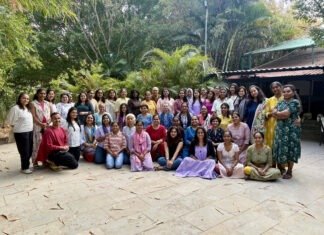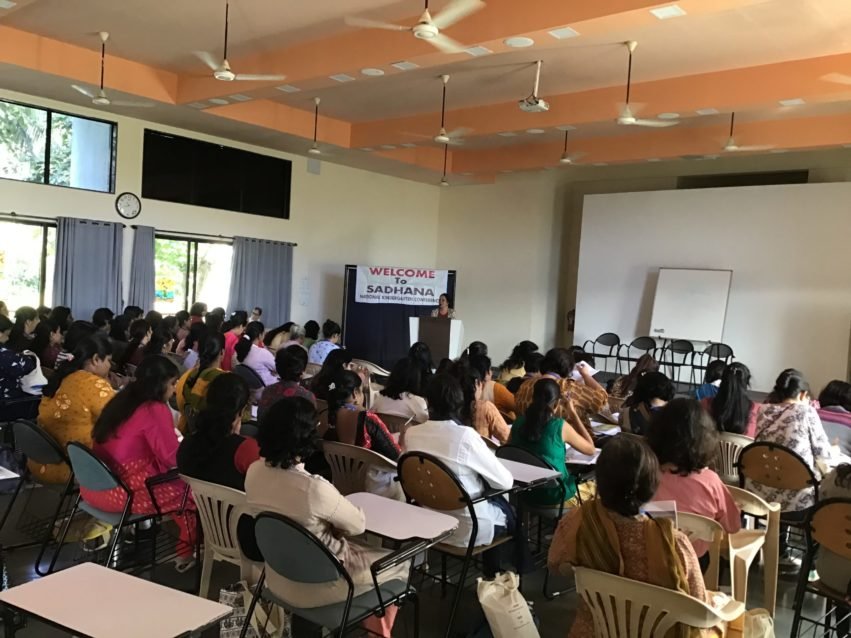Dear Colleague,
We are pleased to hear about your enthusiasm for Steiner/Waldorf Education, and your impulse to begin a Waldorf kindergarten or early childhood center. We often receive similar requests for information and we hope you will not mind if we try to address your questions in this general letter.
A Waldorf kindergarten’s approach and philosophy proceed from the world-view and the insights into the nature of the child that Rudolf Steiner has given through anthroposophy. A new intiative needs a core community surrounding it that is thoroughly familiar with and committed to that philosophy and pedagogy for the initiative to prosper. It also takes time to found a successful Waldorf kindergarten.
Enthusiastic parents are essential for helping to found a school, but this same enthusiasm can lead parents to found a school too quickly. The founding of a Waldorf kindergarten or school must have an element of selflessness, rather than being created to benefit only one’s own children.
We know this can be a difficult thing to hear, but the pace and quality of development are the greatest factors in determining the future strength or weakness of a school. A weak, hastily built foundation remains with a kindergarten or school for its lifetime, and one sees the effects of it again and again. We all want schools and kindergartens to flourish and thrive – this is quite possible if one works hard together to form a supportive basis and does not rush.
Here are some of the basic steps which have proven successful:
Forming an Initiative Group:
After individuals become interested and enthusiastic about Waldorf education, it is important to locate others with similar interests and together to develop a committed group of individuals.
This initiative group will carry responsibility for planning and development, provide opportunities for interest to grow by offering introductory lectures or workshops in the community, identify potential teachers and support them in attending a Waldorf training course, find the necessary financial and human resources and undertake the practical and legal steps required to open a kindergarten.
The timing varies from one community to another, but experience has shown that it is essential to have a strong foundation in Waldorf Education and anthroposophy if a kindergarten or school is to grow and thrive, and such a foundation is not laid overnight.
It is good to find a mentor/helper.
A mentor can help to deepen the understanding of Waldorf education, make suggestions based on experience, and provide a link to the wider world movement of Steiner/Waldorf education. It is also important to look for opportunities to travel to established Waldorf kindergartens and schools in order to experience this education in action and to meet with Waldorf teachers for advice.
Establishing Study Groups. Experience has shown that the study of the anthroposophical view of the developing child and the anthroposophical approach to education is essential for those intending to found a Waldorf kindergarten or school, because Waldorf Education arises out of the soil of anthroposophy. It is out of this soil that the roots of the school will grow and derive nourishment.
A Waldorf initiative group often includes regular study of Waldorf education in its meetings. This includes reading and disussing books about Waldorf Education and inviting experienced Waldorf educators to offer lectures or workshops for the wider community. Popular books for new study groups include Work and Play in Early Childhood by Freya Jaffke (Floris Books), What is a Waldorf Kindergarten? (Steiner Books), and Waldorf Kindergartens Today (Floris Press).
Introductory works by Rudolf Steiner on education include Education of the Child in the Light of Anthroposophy and The Kingdom of Childhood. You can also find further suggestions for study, such as the article “The Essentials of Waldorf Early Childhood Education” on the IASWECE website in the section on Waldorf Education.
Founding a Playgroup.
Many parent communities have been creative in meeting their own children’s needs before a formal kindergarten is started. They have regular festival celebrations and organize puppet shows and other activities for children and families.
Playgroups usually meet in a home and often have a small group of children. This is more informal than founding a kindergarten, and many communities find it is a good starting point in their work with groups of children. Generally, playgroups do not need to meet such strict licensing requirements as kindergarten or preschool programs, especially when parents are present, and their informal nature may be less demanding for those in charge than a Waldorf kindergarten. These playgroups are often led by individuals who are educating themselves about Steiner/Waldorf Education through study, introductory courses and conferences, but have not yet have completed a Waldorf training course. They may discover that they are interested in undertaking a training course and might become one of the founding teachers of the future kindergarten or school.
Finding a Teacher/Educator:
Trained teachers are essential in order to safeguard the quality of Waldorf education. A newly founded Waldorf kindergarten should be led by a fully trained Waldorf kindergarten teacher, who has ideally already had experience working in an established Steiner Waldorf kindergarten.
However, there is a critical shortage of such teachers worldwide and it is difficult to attract a trained teacher from another country to become a founding teacher for a new intiative. Although mentors from abroad may be found who can spend some months or a year or more helping a new initiative, it is good if the actual kindergarten educators are rooted in the local community.
We therefore recommend that you identify individuals from your community who are interested in becoming Waldorf educators and help make it possible for them to take a full training prior to opening a kindergarten.
There is a list of recognized Waldorf early childhood training institutes on the IASWECE website at www.iaswece.org. You can contact these training centers directly for further information about course content, admission requirements, certifcates, and costs and possible financial aid.
Founding a Kindergarten is a formal, official step which usually requires legal incorporation, full licensing through the appropriate government offices, rental of space, etc.. Founding a Steiner Waldorf elementary school is an even greater step, best undertaken after the kindergarten and early childhood programs are well-established with healthy enrollments.
It is important to be aware that the use of the name “Waldorf” is legally protected on an international basis. Kindergartens or schools wishing to use the word Waldorf (including “Waldorf inspired”) in their name will be required to demonstrate the Waldorf nature of their initiative and meet criteria agreed upon by the international Steiner Waldorf movement. You can contact IASWECE for further information on this.
How IASWECE Can Help:
As your group moves forward towards developing a Waldorf kindergarten, the International Association of Steiner Waldorf Kindergartens (IASWECE) can help in the following ways:
- Adviceandassistanceinfindingmentors
- Information on conferences and workshops on Waldorf education
- E-newsletters published several times each year
- Information on training through the IASWECE website
- The possibility of listing your kindergarten in the IASWECE World Directory of Kindergartens once it is established
- Help in locating other Waldorf early childhood colleagues and groups in your country or region so that collaboration can take place.
Further information can be found on the IASWECE website. We encourage you to subscribe to our e-newsletter and become a Supporting Member of IASWECE, as described on the website, so that we can stay in touch. We also hope you will let us know more about your groups and the progress you are making. Please let us know how things are developing!
With best wishes,
Susan Howard, Clara Aerts, Philipp Reubke Coordinating Group International Association for Steiner Waldorf Early Childhood Education









